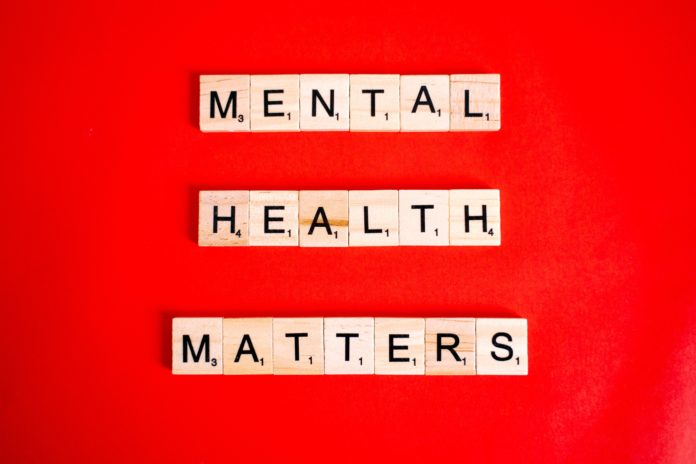

According to a report from the Centers for Disease Control for 2020, Colorado had one of the highest rates of suicide in the country. A 2023 report from Mental Health America ranked Colorado 45th when taking into account the prevalence of mental illness and access to care.
Organizations like Mental Health Colorado and the state’s chapter of the National Alliance on Mental Illness are working to help curb these trends by bringing forward their positions with the Colorado General Assembly.
MHC has a goal to promote well-being and increase access to care. The president and CEO of that organization, Vincent Atchity, said the state has received a major boost in funding from the American Rescue Plan Act, getting about $450 million that has been earmarked for behavioral health.
Atchity was on the governor’s task force that made recommendations for how those funds should be assigned. He said that group was thoughtful about having community-led interventions to plug up gaps in systems and getting children more mental health support. Requests for proposals for grants are out now.
“It’s a big infusion of cash that’s gotta go,” Atchity said. “Part of the conditions for the grant funding in the proposals; the community applying for the funds needs to have a sustainability plan beyond 2026. They can use it to transform a system, but then the system needs to carry on.”
Atchity noted some of the funding has already been designated for workforce development, inpatient beds and community gap grants.
MHC also does some of its work at the state capitol with two lobbyists on staff, as it continues to support several bills during the 2023 session.
One bill is related to eating disorders which have been connected to a much higher than average mortality rate.
“They’re very misunderstood and there’s been very little in terms of access to quality care or establishment of standards of care,” Atchity said.
If approved, the bill would prohibit some health benefit plans or the state medical assistance program from using body mass index, ideal body weight or other standards that require an achieved weight when determining medical necessity criteria or appropriate level of care for someone with an eating disorder. Atchity contended BMI isn’t indicative of someone’s health when they have an eating disorder, but that’s been used as a threshold for access to care.
The bill would also stop a retailer from selling dietary supplements for weight loss to anyone under 18 without a prescription.
Another bill MHC is hoping to get passed involves restraints on prisoners and would put more regulations on how they would be used. MHC is also in support of a good samaritan law for overdoses. Under the current law, someone is immune from prosecution of some criminal offenses if they report an overdose to an emergency responder. The proposed bill extends that immunity to someone who didn’t report the overdose, but aided the person overdosing and satisfies additional requirements related to the reporting. The bill was introduced to the Senate Judiciary Committee earlier this month after passing a third reading in the House with no amendments.
Ray Merenstein, the executive director of mental illness and advocacy group NAMI Colorado, said they are also supporting multiple bills including school mental health screening for students. Under a proposed act, a bill introduced Jan. 9 would create a mental health assessment program for those in sixth through 12th grade, that lets public schools allow the students to participate on-site. The bill would also allow parents to opt their children out of the program, but a student 12 years and older can consent even if their parents opt them out. That bill has passed a third reading in the House with no amendments as of March 20.
“We need multiple avenues for students and this adds one more element that still leaves the choice to opt in or out with the student,” Merenstein wrote.
Another major bill NAMI Colorado was supporting was connected to university student IDs. The bill, which was signed into law by Gov. Jared Polis on March 17, requires higher education institutions to print phone and text talk numbers for the statewide Colorado Crisis Services line and the national suicide and crisis lifeline on each student identification card after Aug. 1. Merenstein noted that the effort was an extension of public schools legislation last year.
Jail diversion programs are also on top of mind for NAMI Colorado, Merenstein wrote. According to NAMI Colorado’s bill tracker, the organization supports a bill that would remove the requirement that there needs to be a finding a defendant in jail or an inpatient setting is a danger to themselves or others in order to get a competency evaluation and report. If that evaluation determines the defendant meets the criteria for civil certification, along with inpatient services, the Behavioral Health Administration would need to provide services for the defendant.
Another bill that NAMI Colorado supports, according to its bill tracker, would require the Colorado Department of Human Services to work with an independent third party to conduct a study to determine the feasibility of creating a system to support those with serious mental illnesses through the collaboration of Colorado’s behavioral health and judicial systems. The system would help support access to voluntary and involuntary behavioral health care and housing support services.
Overall, Merenstein wrote any bill that would provide more education and resources for law enforcement, judges and providers that steer individuals toward care and not incarceration is something they support.
“We know there are models in other states that are saving lives and saving money,” Merenstein wrote.
Like MHC, the state’s NAMI organization is also excited about the $450 million being allocated for behavioral health throughout the state.

